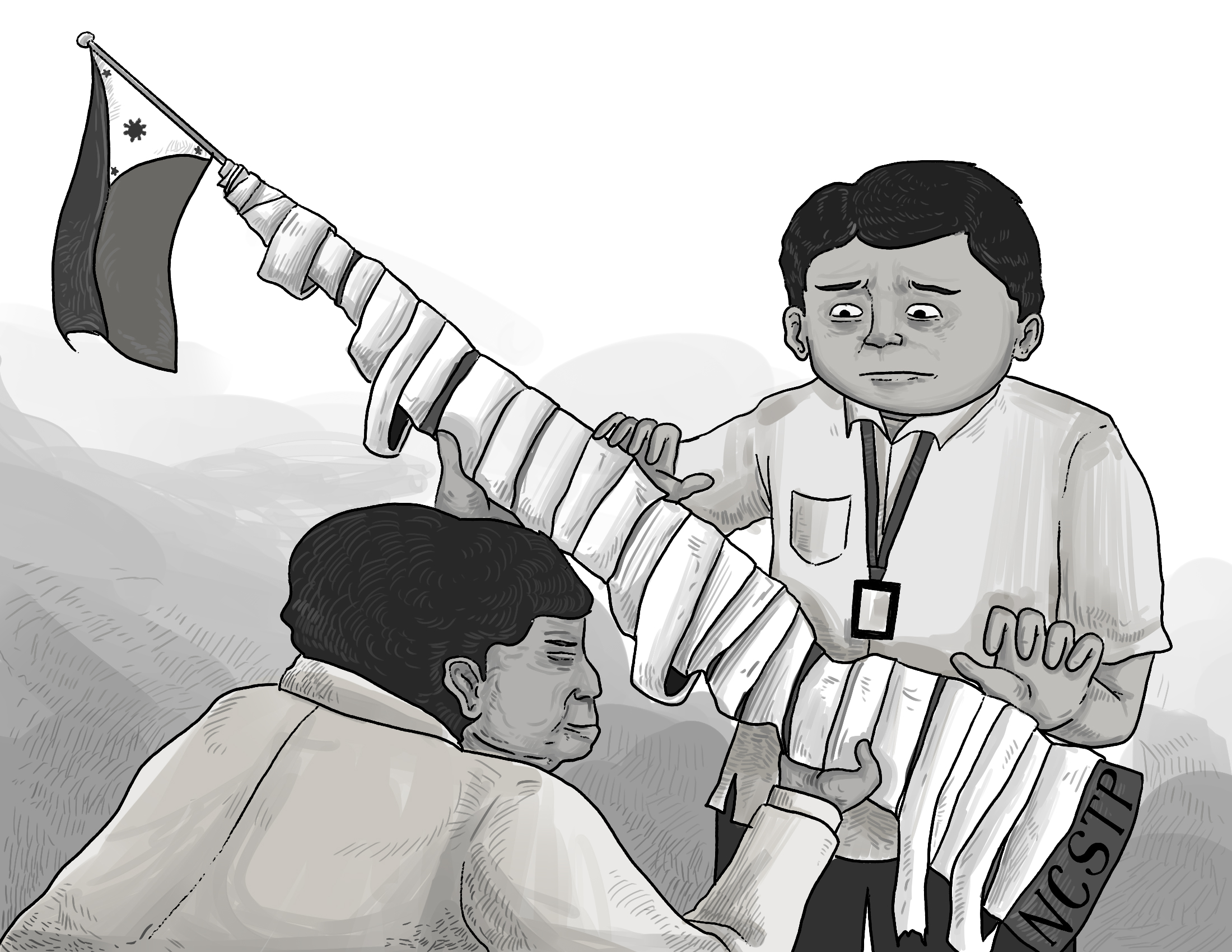NCSTP is an illusion of choice
Originally published in HF Volume 37 Issue 1
As the new administration resurfaces talks of Mandatory Reserve Officer Training Corps (ROTC) within the college curriculum, students stand at risk of another attempt at militarization of our education in the form of National Citizens Service Training Program (NCSTP), which recently passed the third reading in the House of Representatives (HOR) on December 2022.
Marked as urgent by President Ferdinand ‘Bongbong’ Marcos Jr., the bill aims to mandate students in Higher Education Institutions (HEIs) and Technical Vocational Institutions (TVIs) under Technical Education and Skills Development Authority (TESDA) to enroll in the program for two years or four semesters, stripping them of the choice provided by National Service Training Program (NSTP). Where students have the freedom to train under their preferred NSTP component, the NCSTP Act demands that they subject themselves to the full curriculum. Students who finish the program will then be automatically inducted as members of the Armed Forces of the Philippines (AFP) reserve force, thus institutionalizing ROTC.
NCSTP promises to instill nationalism and love for country within the youth – a premise that even educational institutions are struggling up until this day. Nationalism, when forcefully imposed and not borne out of cultivated social responsibility, only serves to create fighters for the privileged and the all-powerful, instead of leaders dedicated to serve the people.
One critical aspect of NCSTP is that it holds the threat of militarized education in the guise of civilian training. As per Article IV Section 14 of the proposed bill, “all students who have completed the NCST Program shall be considered to have complied with the mandatory military registration and training under Section 14 of Republic Act No. 7077.” While disaster readiness and leadership training can be included in military training, it cannot, on its own, be wholly considered as sufficient for military training, unless it covers the political motivations that drive a government to engage in military affairs.
What makes mandatory ROTC a political issue is not the fact that it promotes discipline and nationalism. ROTC is a cause of concern for students as it holds a long history of abuse, oppression, and practices that red-tags and labels activists as terrorists, thus serving the state forces instead of the people.
Moreover, institutionalizing military training only serves to divert the attention of the youth away from the pressing matters of education, promoting blind obedience and commitment to causes without fully understanding its nuances. As a result, students would be more prepared for war instead of understanding why conflicts and armed struggles develop in the first place, and would sooner learn how to march the beat of the government’s drum instead of learning how to rush to the aid of their fellow Filipinos.
Giving NCSTP a chance without considering its possible ramifications is only one manifestation of their teachings–to blindly accept changes so long as they’re dressed with the premise of discipline. The mere fact it is considered more urgent over educational issues that come from living in a post-lockdown world and widening digital gap, and that it fails to address the limitations of the current NSTP reveals our government’s priorities more than it does with ours–which is to promote subservience without questioning authority.




